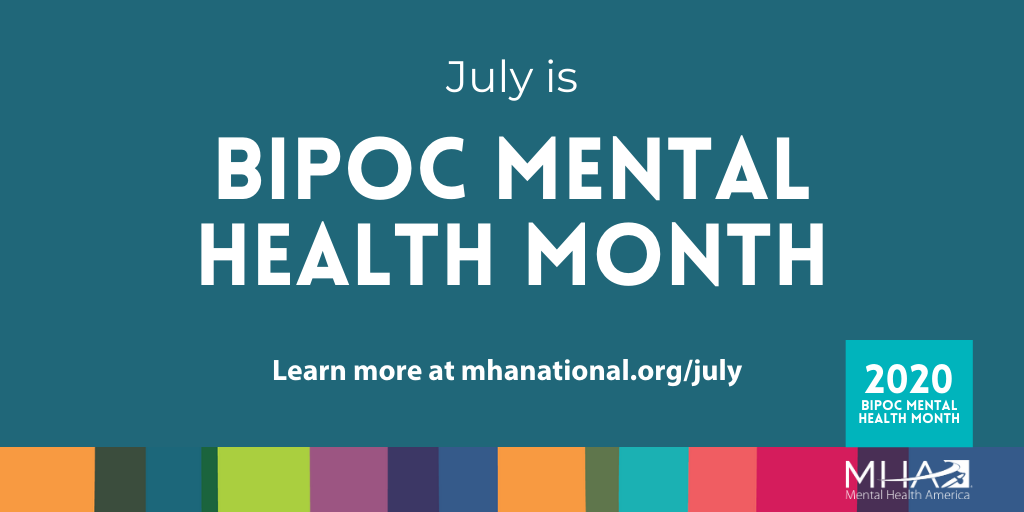
July is Minority Mental Health Awareness Month, also known as BIPOC (Blacks, Indigenous People, and People of Color) Mental Health Month. This is a month dedicated to promoting better mental health treatment for minority members and removing the stigma surrounding mental health care that keeps many individuals from asking for help. Please note that acknowledgment and distinction of minority mental health does not aim to further divide or isolate minority communities. It also does not take focus away from the nationwide mental health crisis. Rather, dedicating a month to the mental health of minority populations highlights the importance of knowledge and access associated with BIPOC mental health and helps people feel less alone in their mental health journeys.
While mental illness doesn’t discriminate, affecting 1 in 5 adults, resources that identify and treat mental health conditions are not evenly dispersed throughout races. With disparities existing in knowledge about and access to mental healthcare, the impact is oftentimes greater for some groups than others. For example, African Americans are 20% more likely to experience severe forms of mental health conditions. It has also been found that while 48% of whites received mental health services, only 31% of blacks and Hispanics and 22% of Asians received mental health services.
People with mental health conditions often encounter barriers that prevent them from receiving the appropriate services. Factors that affect access to treatment by members of diverse groups may include a lack of insurance/ underinsurance; mental illness stigma, which is often greater among minority populations; lack of diversity among mental health care providers; language barriers; and distrust in the health care system.
As a nation, we do not have appropriate systems in place to respond to mental health and substance use crises. As a result, persons experiencing mental health or substance use crises may endure unnecessary, and at times harmful experiences, which may include confrontations with law enforcement personnel, being transported to jail, and subjected to ongoing involvement in the criminal justice system.
The connection between mental health and the juvenile justice system is of significant importance to Cafe Momentum, given the population we serve. Research indicates that African American youth are five times more likely than white youth to be detained or committed to youth facilities. Understanding that 65-70% of children in the juvenile justice system have a diagnosable mental health condition, and children in the juvenile justice system have substantially higher rates of behavioral health conditions than children in the general population suggests to us that many of the interns we serve will have a diagnosable mental health condition. Knowing this information is not enough, we have to do something with that knowledge. At least 75% of youth in the juvenile justice system experienced traumatic victimization, and 93% reported exposure to adverse childhood experiences including child abuse, family and community violence, and serious illness. Understanding this, we as an organization include mental health as a vital part of our wrap-around services for interns in the hopes of building bridges to the community, families, and the broader mental health system.
Despite significant progress in research, practice, and policy over the past few decades, many children and youth continue to experience poor mental health outcomes based on their socioeconomic disadvantage, ethnic or racial minority status or immigrant status. As a result, many of these children fail to adequately meet developmental tasks, demands, and transitions, such as entry into and successful achievement in school, interpersonal and peer relationships, and civic functioning. Compounding these challenges for minority children and youth is their low levels of mental health service utilization, impediments to accessing care, and care that is not culturally competent or does not conform to evidence-based guidelines.
It is vital that we continue to make progress in understanding minority mental health, developing appropriate care, and making mental health resources more accessible to minority youth and their families. Doing this requires being intentional in dismantling systems that perpetuate discrimination, work against health equity, and place blame on BIPOC communities. Additionally, work is needed to educate and reframe BIPOC’s understanding of mental health and remove the stigma associated with seeking help.
– Dr. Porshia Haymon, Director of Clinical Services at Cafe Momentum
